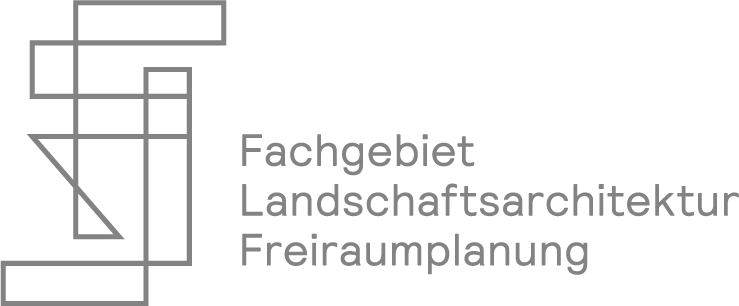Mission
Statement
[EN] BB2040 is a collaborative platform project exploring #transformation processes in #BerlinBrandenburg from the perspective of #infrastructures. We will invite students, colleagues, collaborators and guests to contribute their knowledge, ideas and speculations on how infrastructures as the glue of urbanization will (need to) change and reconfigure in light of global and local challenges to provide for a livable future in #2040.
We understand infrastructures as an instrumental landscape of essential resources, processes and services that constitute the foundations of communal life in an urbanized society – a landscape that enables connections and opportunities, but also tends to produce specific spheres of influence and inequalities through embedded hierarchies and relationships of order. Far from being neutral objectivizations of materialized circulations, they reveal relationships of power between citizens and state, or between various state and non-state entities, and are the result of complex transdisciplinary, multi-scalar negotiation processes.
To make future living in Berlin-Brandenburg inclusive, equitable and ecologically sustainable will require a number of vital systemic changes and “infrastructural turns”. Coal and other fossil-based systems will need to fade and provide yet unexplored spatial potential. Other infrastructures will have to be maintained, altered and adapted to a variety of emerging challenges related to societal changes, climate, or economics, etc. There are some that still need to be imagined and implemented from scratch; and others that need to be protected from the risk of being neglected or forgotten – as they appear to be invisible yet might be existential for human-non-human coexistence. All of the above will have to be considered.
The centennial of the municipal reform that created Greater Berlin in 1920 reminds us that radical steps are needed in historic moments. By merging the administrative boundaries of six cities and 86 rural municipalities and manor districts into one metropolis, the basis for a stable legislative framework was created that has so far endured 100 years.
The year 2020 might be another historic opportunity. Life during the pandemic has made clear how vulnerable a multitude of our systems are. With climate change, resource depletion or global inequalities, multiple crises at planetary scale loom behind the present one – which provides a glimpse of the likely impacts and uncertainties we will face if we continue in business as usual mode.
BB2040 proposes to use the present normality under lock-down for a speculative journey into the future. To visualize both dystopian and utopian futures of an imagined year 2040 can be a powerful step towards avoiding a return to the stick-in-the sand mentality that characterized local planning and urban decision making before the pandemic. In line with global “grow back better” demands we would like to imagine 2020 as the year of beginning to think towards positive change.
BB2040 investigates infrastructures as a lever to facilitate transformation. Infrastructures can combine future oriented thinking of uncertain futures with concrete, conceivable and negotiable realities of the present day.
The project devises a framework for a creative process involving multiple participants aiming to build a bridge between the vast systemic knowledge about present day challenges and planetary risks, policy processes and global agendas such as SDGs that provide references of what needs to be changed in the future, and specific conditions, resources and actors within Berlin and Brandenburg that will need to be involved in transformative change.
[DE] BB2040 ist eine kollaborative Plattform zur Erforschung von #Infrastrukturen in #BerlinBrandenburg #inTransformation bis zum Jahr #2040. Wir laden Studierende, Kollegen und Gäste ein, ihr Wissen, ihre Ideen und Spekulationen darüber einzubringen, wie Infrastrukturen neu gedacht und rekonfiguriert werden (müssten), um eine lebenswerte Zukunft zu ermöglichen.
Wir verstehen Infrastrukturen als eine instrumentelle Landschaft aus Objekten, Ressourcen, Prozessen und Dienstleistungen, die die Grundlagen des Gemeinschaftslebens in einer urbanisierten Gesellschaft bilden – eine Landschaft, die Verbindungen und Chancen ermöglicht, die aber auch dazu neigt, durch eingebettete Hierarchien spezifische Einflussbereiche und Ungleichheiten zu erzeugen.
Um ein zukünftiges Leben im Metropolballungsraum Berlin-Brandenburg inklusiv, gerecht und ökologisch nachhaltig zu gestalten, sind eine Reihe wichtiger systemischer Veränderungen und „infrastruktureller Umbrüche“ erforderlich. Kohle und andere fossile Systeme werden aus unserem Alltag verschwinden müssen, eröffnen jedoch zugleich weithin unerforschtes, räumliches Potenzial. Andere Infrastrukturen müssen instandgehalten, verändert und an eine Vielzahl aufkommender Herausforderungen im Zusammenhang von gesellschaftlichen, ökologischen und wirtschaftlichen Veränderungen, angepasst oder noch von Grund auf neu konzipiert und umgesetzt werden. Wieder andere – die vielleicht lange Zeit keine Rolle in einer mensch-gemachten Welt gespielt haben – müssen vor dem Risiko geschützt werden, weiterhin vernachlässigt oder vergessen zu werden.
Das hundertjährige Bestehens Groß-Berlins und die damit einhergehende Kommunalreform, die 1920 den Großraum zusammenschloss, erinnert uns daran, dass in historischen Momenten radikale Schritte erforderlich sind. Durch die Zusammenlegung der Verwaltungsgrenzen von sechs Städten sowie 86 ländlichen Gemeinden und Landgütern zu einer Metropole, wurde die Grundlage für einen stabilen administrativen Rahmen geschaffen, der über ein Jahrhundert hinweg bis heute weitestgehend Bestand hat. Das Jahr 2020 könnte eine weitere historische Chance sein. Die COVID-19-Pandemie verdeutlicht uns, wie anfällig viele unserer Systeme schon auf kurzzeitige Veränderungen sind. Klimawandel, Ressourcenverknappung und globalen Ungleichheiten werden in Zukunft noch weit größere Krisen auf globaler Ebene produzieren. In diesen Tagen gewinnen wir einen Einblick in Auswirkungen und Unsicherheiten denen wir gegenüberstehen werden, wenn wir wie gewohnt weitermachen.
Wir schlagen deshalb vor, die „neue Normalität“ von COVID-19 für eine spekulative Reise in in sowohl dystopischer als auch utopischer Zukünfte eines imaginären Jahres 2040 zu nutzen.
Das Projekt ist eine Plattform für spekulative Entwürfe, mit dem Ziel Brücken zwischen dem umfangreichen systemischen Wissen über die Herausforderungen der Gegenwart und der globalen Risiken und den spezifischen Bedingungen, Ressourcen und Akteuren innerhalb Berlin-Brandenburgs zu bauen, und an konkreten Orten im Metropolraum dafür Bilder und Visionen zu entwickeln.
BB2040
[EN] Berlin Brandenburg 2040 was initiated by the Habitat Unit in cooperation with Projekte International and provides an open stage and platform for multiple contributions of departments and students of the Technical University Berlin and beyond. The project is funded by the Robert Bosch Foundation.
[DE] Berlin Brandenburg 2040 wurde initiiert von der Habitat Unit in Kooperation mit Projekte International und bietet eine offene Plattform für Beiträge von Fachgebieten und Studierenden der Technischen Universität Berlin und darüberhinaus. Das Projekt wird von der Robert Bosch Stiftung gefördert.








